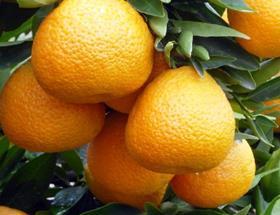
South African soft citrus and grapefruit growers have been asked by the Citrus Growers’ Association (CGA) to vote before Friday (13 November) to indicate their support for the introduction of two promotional campaigns for these products next season.
If the growers support these initiatives, it will mark the first time since deregulation in 1997 that coordinated international promotions will resume for South African citrus.
The move follows market research carried out in Japan to establish the basis for such a campaign for South African grapefruit, as well as a recent visit by an industry delegation to discuss a possible campaign with Japanese importers and members of the trade. At the same time, the South African Soft Citrus Focus Group (SCFG) asked the CGA to test grower support for launching an international awareness campaign.
“South Africa has to a large extent lost its identity as a country producing a basket of safe, tasty and consistently good quality fruit, as nobody is really doing any country of origin promotions,” said Justin Chadwick of the CGA. “Export agents promote their brands and, in many cases, that particular brand also covers fruit procured from other countries around the world. In 2009, South African plum growers engaged in a pilot country of origin campaign in the United Kingdom, which produced good results. This is now being expanded to include other deciduous fruits and table grapes, and the citrus industry has been invited to be part of this.”
Mr Chadwick added that SCFG members met with their constituencies and received positive feedback, although some growers felt the time frame was too short for making such a decision. “However, if we are to latch onto the present campaign (for deciduous products and grapes) then we have to make financial commitments by 1 December and grower support needs to be determined before then.”
It is not surprising that grapefruit growers have chosen Japan as their first port of call in resuming country of origin promotions. It is a crucial market for South African grapefruit, and with demand having declined in 2009, it is the obvious place to start.
“In 2006, DTI and the Grapefruit Focus Group (GFG) funded market research that concluded that a market development campaign for grapefruit in Japan was needed to stimulate sales,” said Mr Chadwick. “In 2009, weekly sales rates have lagged the five-year average by 15-20 per cent during most weeks. Many will argue that this is due to the economic conditions prevailing at present, but others will show that those who spent money promoting their products during these difficult times actually experienced acceptable sales rates.”
Grapefruit growers are being asked to support a four-year statutory levy on all export cartons, irrespective of the region or country that they are sold in. The levy will be based on the previous year’s export cartons (15 Kg equivalents) and invoiced at the end of March each year.
Mr Chadwick said that while growers are being asked to support the campaign, the CGA has also made an application to South Africa’s department of Trade and Industry to assist with funding.
“South Africa has to a certain extent lost its identity as a country of origin of good quality, tasty, safe and nutritious fruit,' he said. 'The idea is to get this back into the minds of both the trade and consumers in order to influence their buying decisions.'



